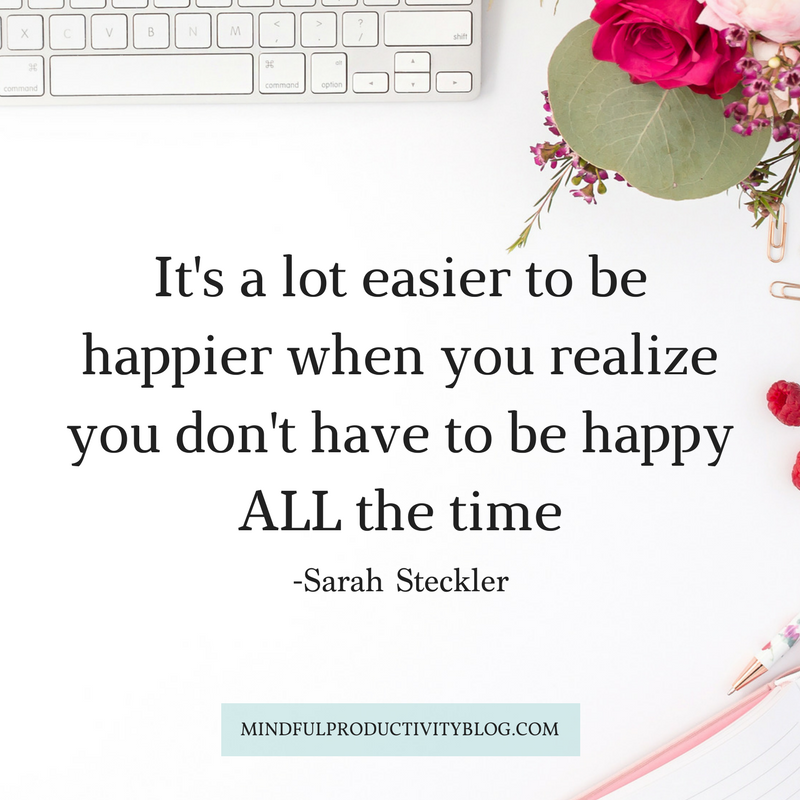I like who I am. I don’t have major issues of character or personality problems. I’m guilty of no great transgressions, emotional assaults, nor profound negative behavior towards anyone in my life. Certainly nothing consciously deliberate. I think I am a pretty damn decent good person.
The enduring struggles and areas in my life that could use improvement are things I clearly recognize and don’t like about myself, nor my trajectory to date. Being introspective from adolescence, its always been tough absorbing my own levels of self generated personal critique, Still, to survive with any sense of emotional stability, and to avoid damaging depression, I’ve had to forgive myself as I move along life’s timeline. I really have no choice if I want to maintain purposeful self esteem going forward.
I try to space out these type of posts as follows below. There are more than enough of self help lectures out there for all of us, but this particular offering speaks to me right now..
If you’re struggling with anything, or many things, and find yourself slipping into guilt, lack of self worth, or repressing important feelings due to fear of judgement, or rejection from others, try reading the content that follows written by Sarah Steckler, who I randomly discovered recently.
From her pics and limited background info, Sarah seems remarkably young to have the insight she presents here. So much so, that I actually consider/ed her being a marketing prop to pull traffic and business from the target demographic she represents. Is this far fetched? Maybe. Maybe not. Nothing is beyond online dishonesty these days. Nothing. So why not this?
But, here’s the thing. what’s written here, whether by Sarah, or someone else behind her, is good stuff. Its valuable. That matters. If you need something, someone, to help you feel okay about yourself, try reading.
Post below copied from Mindful Productivity Blog
Why I no longer focus on gratitude lists or being more “positive”
Oh the controversy!
Gratitude lists are everything right now.
Feeling blue?
Write down 3 things you’re grateful for
Really upset about something?
Focus on the positive and everything you DO have
Research studies like this one have even proved that we can rewire our brains by thinking more positive thoughts.
So why on earth am I writing a blog post / rant about something that’s been scientifically PROVEN to be beneficial to us?
Like most people I’ve been through a slew of ups and downs, horrible experiences, terrible times, really low lows, and some really high highs, but I’ve noticed something about the way others treat me through all of these – and how we react to others when they aren’t being positive, grateful, and “spreading love and light” all over social media.
We seem to have this visceral reaction to negative things.
So much so that websites and even news organizations have devoted themselves to “good” and “positive” only stories.
This isn’t a bad thing especially when mainstream media and news can tend to err on the side of doomsday stories.
We all need a little reminder that the humanity side of things still exists and that not everything is going completely wrong.
The issue is that we’ve taken a full swing into a dangerous territory. There’s a sense of safety and comfort in only listening to the good, focusing on the positive, and quite frankly, avoiding the negative, and sometimes even avoiding the reality of things.

And chances are that you’ve experienced this or been a part of the problem (don’t worry, I have, too).
Post anything positive and inline with what “mainstream happiness” might look or feel like and the likes will POUR in.
Get real with something, express frustration, and people get uncomfortable.
In fact, we get so uncomfortable with other people’s “negativity” that we start shaming them in indirect ways.
We say things like:
-
“Look at the bright side”
-
“This won’t matter in 5 years so don’t worry about it now”
-
“You should be more positive”
-
“You really have nothing to complain about”
-
“Be grateful for what you have”
All of these comments tend to come from a good place. But for a moment let’s examine the root of where they exist.
They are ego driven. Meaning we typically want other people to feel better not because of their situation but more often because their negativity, or the ways in which they are sharing their personal experience is uncomfortable to us.
I lost my Dad when I was 23 and for the 8 or so months following his death I went on a positivity rampage. I pushed all of my pain, anger, and fear aside and decided to make it my mission to show anyone and everyone that death doesn’t have to mean sadness.
I lost 50lbs, I went out with friends non-stop, I posted endless Pinterest quotes and told everyone that everyday they have a choice to feel happy.
And for a while it worked…. kind of.
The trouble began when I realized that I was suppressing certain emotions, I was “dealing” with my grief instead of experiencing it and allowing it.
-
I broke out in hives anytime I was alone from the stress and grief alone and quickly took benadryl and returned to Pinterest land to make them go away.
-
I endured extreme stomach pains and had a hard time eating for months after his death and instead of really diving deep into the pain, I told myself to be stronger and drank bottles of Pepto.
Here’s the thing about human emotions, they exist and one isn’t any better than the other.
Also, all of them are fleeting so saying things like “happiness is a choice” is silly in a lot of ways because that choice often results in the denial of other emotions that are present.

It’s a lot like saying “holding your breath is a choice” – you can hold your breath right now, anytime really. When you’re sad when you hear something you don’t like, when you stub your toe, when someone dies. It’s always your choice to do so but you’re also cutting off your oxygen supply and you can’t do it forever.
There are some great ways to reframe things and gratitude plays an important role in creating more sustainable happiness in our lives but if it’s done in a way that excludes all of the other endless human emotions and experiences, you’re doing yourself a disservice.
It’s really hard to run while holding your breath and it’s really hard to move through grieve, adapt to change, and work through frustration if you try to sugarcoat it with striving to choose happiness over giving yourself permission to feel various emotions, thoughts, and feelings.
My husband and I move a great deal. I’ve moved over 17 times in the past 10 years. Every time we experience change, remove someone from our lives, and someone new, try something new, start a new job, move to a new part of the country, or out of the country for that matter, our mind, body, and soul needs time to adjust.
Heck even if you never move, life will present situations and circumstances that put you outside of your comfort zone.
And when those things happen and all you hear is “be more positive” or “keep your newsfeed clear or negative things” it becomes increasingly isolating and depressing to try and navigate.
I see this happen often. The people that post the good things and never share the bad. Not just on their Facebook account but in real life. We think that people will only value our existence or welcome our presence if we’re always positive, if we never complain, if we always have something good to share and bring to the conversation.
True happiness isn’t the act of choosing to be happy, it’s the art and allowance of accepting human emotions, observing them, and being okay with them being a part of our lives.

Emotions are beautiful signs and signals from our bodies and minds. They let us know when boundaries are being pushed that we didn’t know existed. They alert us to pain that still needs to be taken care of, soothed, and mended. They remind us that suffering and sadness are just as much a part of existing as joy, compassion, and love.
Which brings me to some major myths and assumptions we make all the damn time:
Myth #1: If you have something good, you can’t have something bad
Just because you have things to be grateful for doesn’t mean you can’t have things that feel off, upsetting, uncomfortable, or not aligned with what you truly want.
Myth #2: If you have something that someone else doesn’t, you should never complain
After losing my Dad I had people apologize to me when they’d complain or mention their alcoholic father, or the lack of relationship with their Dad. They’d say things like “shit I’m sorry, here I am complaining about my Dad and he’s still alive.
I would say “just because your Dad is still alive doesn’t mean you can’t experience grief from your relationship with him, and it also doesn’t mean your feelings aren’t valid.”
Myth #3: The best way to feel better is to focus on the positive
While there are solid and scientifically founded ways of creating neural pathways in your brain that habitually lean toward the positive, the only way out of things is through them.
Your broken leg won’t heal by merely wishing it to do so (although maybe a bit faster – who knows). Incorporating the positive can definitely boost your experience, but focusing on the positive and ignoring the rest takes away the experience of learning how to cope, adapt, and improve on handling difficult emotions and circumstances.
(Susan David talks more about the “tyranny of positivity” and her book Emotional Agility here)
Myth #4: If you’re not happy, something is wrong with you
There’s such a big push for happiness these days. Endless books on how to be happier, how to be a certain % happier, how to be happier in different locations. And while I won’t discredit the merit within those books and that many of those things do in fact help and improve life, it can start to make you feel like there’s something wrong with you if you’re not happy.
How often do you hear yourself saying “I just feel so off, I don’t know what’s wrong with me!”
Hint: Nothing is wrong with you. You’re a human being who is human being, feeling, and experiencing.
I’m guilty of this too, though. We assume that feeling upset, irritable, aggravated, or less than stellar means we’re doing something wrong. I have so much to be grateful for, how in the world could I ever feel anything but happy?!
Yet we don’t ask ourselves the same question for other emotions.
:: I’m not angry today! What is wrong with me?
:: I’m not crying right now, what did I do?!
Happiness is an emotion NOT a destination.

Striving for endless happiness will in fact, make you more unhappy. Being in denial that other emotions and human experiences exist will make you endlessly miserable.
Myth #5: If you’re not happy, you’re choosing it
I really don’t know if there’s a sentiment I hate more than “choose happiness” – it sounds so easy, so fluffy, and so naive.
I’m sure people will disagree with me.
I know there are ways to “manifest” abundance and happiness.
But if you think for one moment that if you’re not happy, it’s your choice, you’re forgetting about the fact that the world also does happen TO you.
And yes I’m pushing back on this. I’ve read endless books about how the universe is always happening “for” us. Shifting your perspective can make a huge difference and I truly believe I’ve manifested many things in my life.
However, a lot of people take this to another extreme where they think that if anything bad happens it’s their fault. Or that they “attracted” it.
Self-fulfilling prophecy is a hell of a lot different than tragedy, psychopaths, and circumstances that flat out suck. In other words, thinking you can’t do something and then not trying is a way of “attracting” a result or lack of one whereas someone being an asshole or hitting your car is a circumstance and an event.
This could be a whole other blog post. My point is that we cannot choose our emotions. They happen, what we can choose is how we react to them. So in a nutshell, you cannot choose happiness, but you can choose how you react to emotions that lead to a more fulfilling life.
It’s a matter of prolonging a state of mind when we feel good and observing, resolving, and letting go of things when they don’t serve us.
Myth #6: If it won’t matter 5 years from now, it shouldn’t matter now
I’ve started saying this more lately and then realized how shitty it can sound on the other end. There are definitely things that don’t need to be complained about. Small things, things you CAN choose to let go of that don’t involve ignoring signals from your psyche. Like some jerk cutting in front of you in line.
But then there are things that in the present moment really DO suck and that require time to process, that sometimes mean sharing that experience, and that become a lot more difficult when others tell us we shouldn’t be feeling it or expressing it.
This act by the way, of people telling others to “be more positive” or “think about how they attracted something” or my all time favorite “I’m so sorry for your loss but they are in a better place now” is called Light Washing or whitewashing negative thoughts. It’s a pretty shitty way of victim blaming especially when people are going through heavy emotions, tragic events, or need time to process.
I bring this up not because I think everyone who says these cliche statements is an A-hole (I’ve said them, too) but because we need to raise awareness that there’s a collective fear of the negative when really it’s just the human experience and it’s not all that bad.
I’ve said things before like “fear doesn’t serve us” when really it actually…DOES. So does guilt, anger, resentment, and so forth. The key is knowing HOW to observe them, how long to stay with them, and learning how to navigate them instead of letting them take over the steering wheel.
So what do I do instead of endless gratitude lists?
For the record I do still write down things I’m grateful for and I do still reframe “negative” things.
But instead of sugar coating them with positivity or ignoring the difficult things, I get real with the reality of all of them.
Here’s my process: (something I’ve been doing since I was 10 years old, seriously, although I didn’t call it a *$&% it list” back then)
1 Write a “Fuck it” list
Sometimes these lists get REALLY long. I list out things that really bother me, things I can’t seem to get un-angry about, things I wish would change, things I don’t like about my current situation, new place of residence, or how I’m being treated. I go WILD, no apologies, no worry over feeling guilty about being so “negative” – I just let it ALL out.
2 Cross off things I can immediately let go of after acknowledging them
After going through this process I feel lighter, more at ease, and after a few minutes of huffing and puffing I have a solid awareness of what I can really let go of and what really doesn’t matter. In other words, things I don’t have to give a fuck about or give any more mental energy to.
3 Highlight the things that REALLY still bug me
Some things aren’t so easy to let go of. I highlight these.
4 Make a sub list of what I can do about the things that stick
From here I take the top 3 things that are really pissing me off (that I still GAF about) and write down ways I can feel better or things I can do to take ACTION toward improving them.
This does a few things:
-
It puts me back into a state of empowerment
-
It gives me the power of choice and decisiveness which reduces overwhelm
-
It shows me what’s possible and takes away most feelings of defeat or helplessness


